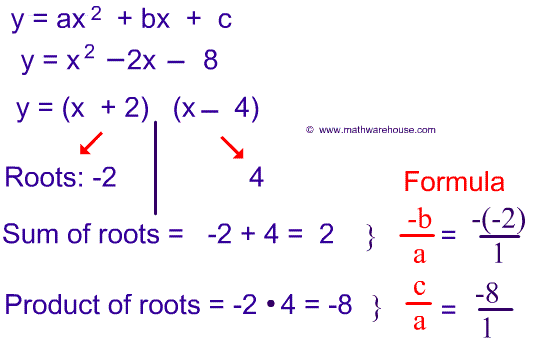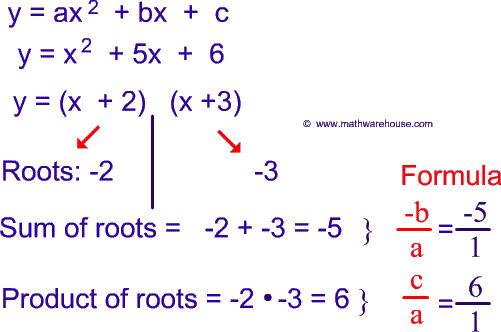Derivation of the Sum of Roots





Derivation of the Product of Roots


By difference of two squares:




The formulas
sum of roots: −b/aproduct of roots: c/a
As you can see from the derivation below, when you are trying to solve aquadratic equations in the form of ax2+bx +c. The sum and product of the roots can be rewritten using the two formulas above.
Example 1

The example below illustrates how this formula applies to the quadratic equation x2 + 5x +6. As you can see the sum of the roots is indeed -b/a and the product of the roots is c/a.

Example 2

The example below illustrates how this formula applies to the quadratic equation x2 - 2x - 8. Again, both formulas--for the sum and the product boil down to -b/a and c/a, respectively.


You can visit https://quadraticformulacalculator.net/ to access free calculators.
ReplyDelete